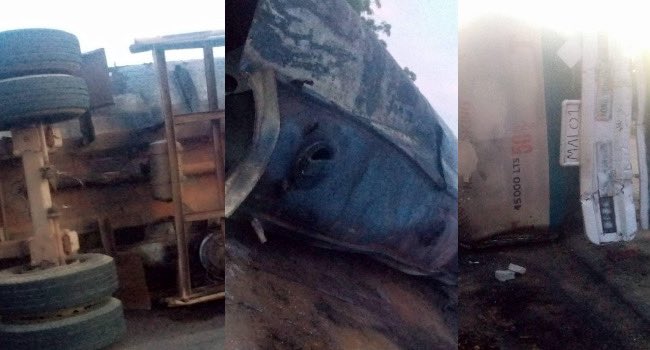The Federal Road Safety Corps (FRSC) has emphasized its commitment to ensuring that hazardous materials, particularly tanker trucks, adhere to stringent safety protocols before loading. This announcement comes in light of increasing incidents of tanker explosions, a serious concern exemplified by a recent tragic event in Jigawa State. On October 15, a petrol-laden truck exploded while en route from Kano to Nguru in Yobe State, resulting in an alarming toll of over 100 immediate fatalities. As the situation unfolded, Jigawa State Governor Umar Namadi reported an updated death count of 181 by October 22, with 80 more individuals remaining hospitalized in critical condition. This event has reignited discussions about safety regulations for trucks that transport volatile substances.
In the wake of these tragic incidents, the FRSC is reinforcing its protocols aimed at preventing such disasters. The systemic approach includes rigorous safety inspections mandated before any tanker is allowed to load its cargo. Olusegun Ogungbemide, the spokesperson for the FRSC, highlighted the organization’s ongoing “Safe to Load” campaign that mandates rigorous inspections at loading terminals. This initiative is part of a broader safety strategy that includes the installation of safety valves and retrofitting existing tankers to meet modern safety standards. These measures are intended to mitigate risks and safeguard public safety, particularly in light of the high frequency of vehicular accidents involving tankers.
Under the “Safe to Load” program, FRSC officers have been redeployed to depots nationwide where they are responsible for verifying that all required safety features are present on tankers. These inspections cover essential equipment such as reflective tapes, safety valves, and fire extinguishers, which are critical in preventing fire-related incidents. Before granting a gate pass for loading operations, these inspections ensure that tankers meet safety compliance measures. With officers stationed at various strategic depots, the FRSC aims to enforce these standards consistently across the country, thereby reducing the potential for accidents involving hazardous materials.
Moreover, the FRSC is actively enhancing its enforcement strategies through special patrols focused on tanker trucks, trailers, and articulated vehicles. This initiative aims to address various safety violations, including overloading, which is a common practice that significantly increases the risk of accidents. By monitoring compliance with safety regulations, the FRSC seeks to deter dangerous behaviors that could lead to catastrophic events. These enhanced patrols serve as a proactive measure to not only enforce safety but also to educate drivers about the importance of adhering to safety standards while operating heavy vehicles.
Public response to the FRSC’s enforcement measures has been largely supportive, especially in light of the recent explosions. Stakeholders, including state officials, have begun to advocate for even more stringent regulations and oversight of the transport industry. The need for comprehensive safety protocols has never been more urgent, given the devastating consequences of incidents like the one in Jigawa State. The collaboration between government agencies and the FRSC around safety functions may lead to the development of more robust frameworks aimed at safeguarding citizens from the perils associated with the transportation of volatile substances.
In summary, while the FRSC’s proactive measures and strict enforcement of tanker safety inspections are critical steps toward preventing further tragedies, the road ahead requires ongoing commitment from all stakeholders involved in the transportation of hazardous materials. The devastating explosion in Jigawa State underscores the need for vigilance, education, and lasting improvements in safety protocols to ensure that such incidents do not recur. By continuing to evaluate and refine safety regulations and enforcement strategies, the FRSC can help create a safer environment for all road users, ultimately minimizing the risk of similar tragedies in the future.


